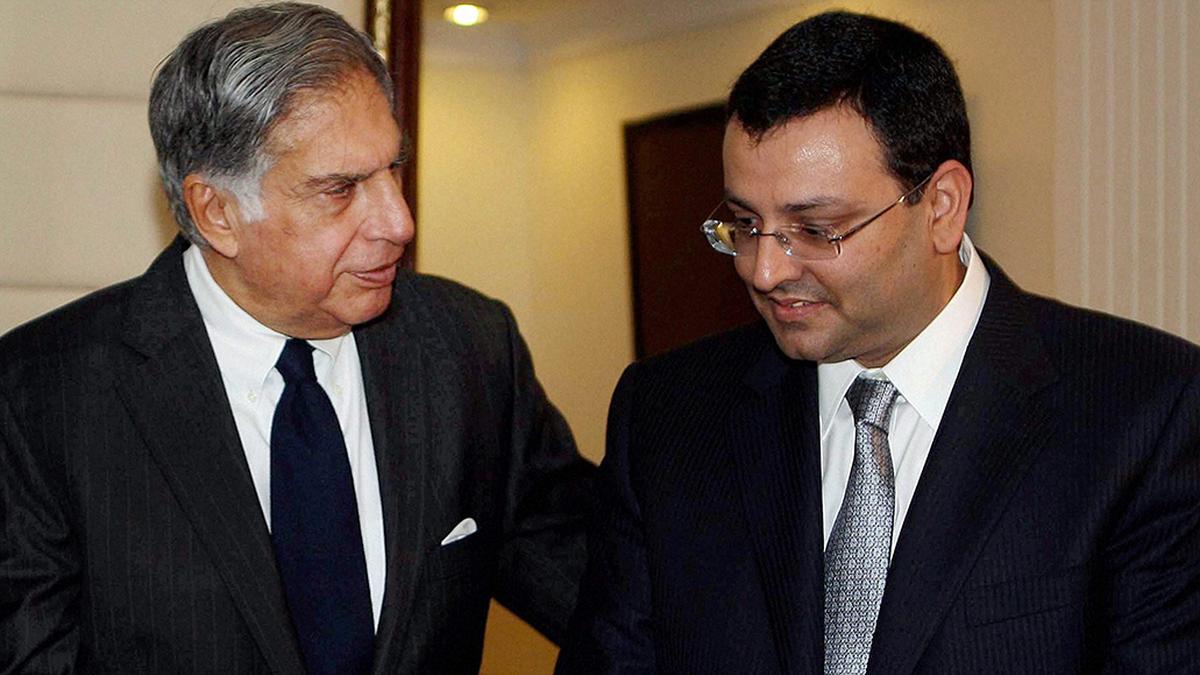
Ratan Tata had second thoughts about Cyrus Mistry's suitability as Tata Sons chairman designate, says book
The Hindu
Ratan Tata's doubts about Cyrus Mistry's suitability as Tata Sons chairman led to a painful fallout and legal battles.
Ratan Tata began having second thoughts about Cyrus Mistry's 'suitability' as chairman-designate of Tata Sons by the end of the first year of apprenticeship under him to give insights and hands-on experience on how to run the group, even before the latter formally taking over the position fully, according to a newly released book.
Tata 'suffered more' than Mistry 'in a way' from the decision to sack his successor as Chairman of Tata Sons in October 2016, claimed a biography of the late veteran industrialist and philanthropist -- Ratan Tata A Life -- authored by Thomas Mathew and published by HarperCollins Publishers.
Late Mistry was chosen in 2011 after a global search by a selection committee to succeed Tata -- who retired as Chairman of Tata Sons in December 2012 -- with his full endorsement, despite apprehensions and reservations expressed by group veterans. For a year Mistry was the 'Chairman designate' before he took over as Chairman of Tata Sons after Tata's retirement.
While approving the recommendation of the selection panel, Tata had two observations while nodding Mistry as his successor. He wanted Mistry, who was then the MD of Shapoorji Pallonji Group with interests similar to the Tatas such as construction, real estate, textiles, engineering goods, and power among others to 'severe all relations' with the company by creating a separation that would be 'legal and tenable'.
The second was that for a year, Mistry would do 'parallel running' with Tata to ensure that he got insights and hands-on experience on how to run the Tata Group, as per the book, based on interviews with Tata himself, his family, friends, former colleagues and business associates.
"Ratan avers that though his interactions with Mistry were largely limited to Tata Sons board meetings, he was impressed with him. When Ratan was able to observe him at close quarters while Mistry was the deputy Chairman, he was reassured," wrote the author, a retired bureaucrat.
"But by the end of the one year of parallel running, Ratan began to have second thoughts about Mistry's suitability as the chairman-designate. He recalls that some of the latter's 'sharp interventions' had surprised him.













